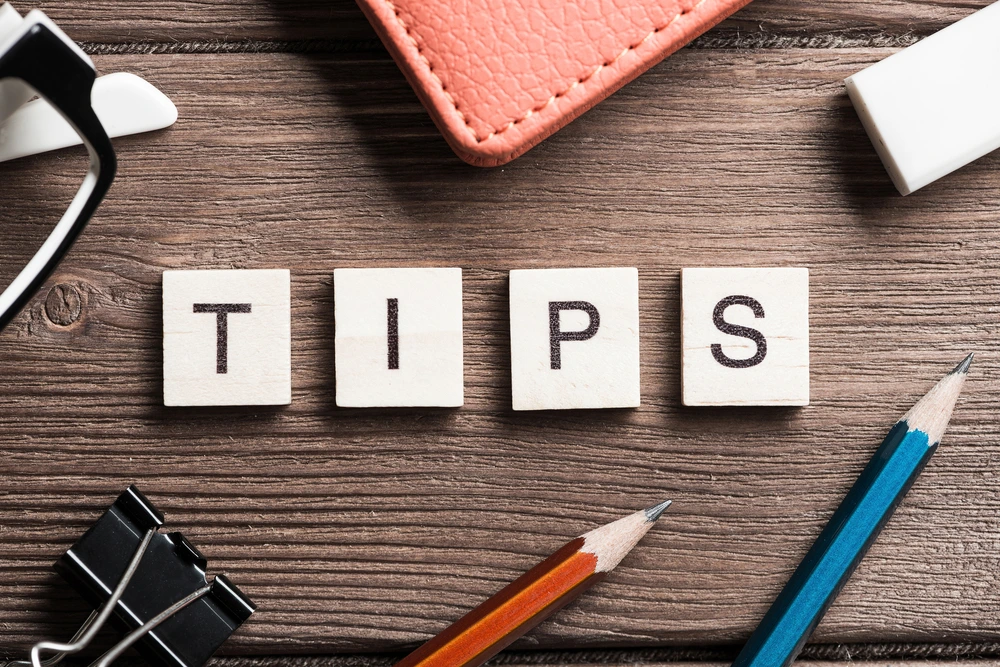While resumes and cover letters effectively highlight a candidate’s career qualifications, these documents often fall short in conveying the person behind those professional achievements. As you prepare for interviews or networking introductions, developing thoughtful responses to questions like “Tell me some fun facts about yourself” can significantly enhance your confidence and approachability.
Candidates who craft memorable and authentic answers, including fun facts about me, stand out even in a crowded job market. Being unprepared for this question can lead to missed opportunities to establish authentic connections with hiring managers who value cultural fit as much as capability.
This comprehensive resource is designed for professionals across various industries. It explores over 25 engaging examples of fun facts about me, offers creative ways to share these insights, and provides valuable tips on leveraging these moments to enhance your personal branding and career visibility.

Why ‘Fun Facts About Me’ Matter in Professional Settings
Sharing “fun facts about me” might appear trivial, yet it plays a valuable role in professional communication. Recruiters and interviewers increasingly emphasize human-to-human connections throughout hiring processes. The ability to share light-hearted personal information demonstrates confidence, emotional intelligence, and authenticity—traits essential in leadership, collaboration, and client-facing roles. According to a CareerBuilder survey, 71% of employers prefer candidates who display strong people skills and a relatable personality during interviews.
Fun facts also support personal branding initiatives on platforms such as LinkedIn or career websites. By revealing unique experiences or interests, professionals convey multidimensional value beyond their job descriptions. A software developer might mention competitive gaming experience to show focus and resilience, while a healthcare worker may share a passion for volunteering in underserved communities to demonstrate empathy—qualities that align naturally with industry values.
Moreover, carefully chosen “fun facts about me” can improve interview dynamics. They provide conversational bridges for recruiters to engage candidates on a personal level, reducing stress and fostering openness. In career networking, particularly at conferences or virtual meetups, concise personal anecdotes increase memorability among dozens of introductions. In short, well-crafted fun facts help job seekers humanize their expertise and enrich their professional story with authenticity and confidence.
25 Engaging Fun Facts About Me Ideas for Job Seekers
Professionals can easily adapt these fun facts based on career context and comfort level. The following list includes a mix of personal, professional, and creative ideas suitable for interviews, LinkedIn introductions, and team meetings.
1. Cultural Curiosity
Sharing experiences such as visiting multiple countries or speaking a second language shows adaptability and openness—qualities employers appreciate in global teams.
2. Unexpected Hobbies
Mentioning unique interests like glassblowing, archery, or baking French pastries adds memorable color to professional discussions.
3. Sports and Fitness
Enthusiasm for running marathons, practicing martial arts, or hiking long trails demonstrates perseverance and goal orientation.
4. Creative Arts
Many job seekers mention painting, writing poetry, or playing musical instruments, which reveal discipline and creativity—often highly regarded soft skills.
5. Volunteer Involvement
Fun facts about mentoring students or organizing community drives highlight leadership and compassion.
6. Learning Goals
Discussing a current learning pursuit—like mastering coding, a new language, or data storytelling—signals intellectual curiosity.
7. Childhood Dreams
Revealing early aspirations, such as wanting to be an astronaut or teacher, subtly connects personal motivation to lifelong ambition.
8. Unusual Work Experiences
Mentioning a first job in an unconventional setting or role can display resilience and adaptability.
9. Professional Milestones
Expressing pride in receiving certifications, academic awards, or career recognitions adds professional context in a lighthearted tone.
10. Animal Companions
Speaking about caring for rescue pets or volunteering at shelters often evokes warmth and empathy.
11. Family Traditions
Describing family customs, favorite meals, or holiday practices helps express cultural identity and interpersonal appreciation.
12. Passion Projects
Candidates sometimes discuss side ventures, podcasts, or blogs they maintain for creative fulfillment.
13. Unusual Talents
Disclosing fun abilities such as solving Rubik’s Cubes, juggling, or doing magic tricks makes introductions engaging and lighthearted.
14. Achievements Under Pressure
Recalling a story of persistence—like completing a difficult fitness milestone—exemplifies dedication.
15. Reading Habits
Talking about favorite authors or genres such as history, science fiction, or leadership inspires connection through shared interests.
16. Culinary Adventures
Enthusiasts occasionally describe experimenting with cuisines or attending culinary workshops to show curiosity and creativity.
17. Unforgettable Travel Moments
Describing a memorable cultural experience abroad adds richness to storytelling ability.
18. Eco-Friendly Lifestyle
Discussing sustainability practices like composting or reducing plastic waste appeals to environmentally conscious employers.
19. Public Speaking Confidence
Mentioning experience participating in Toastmasters or speaking at local events conveys communication strength.
20. Mentorship Impact
Talking about helping others achieve career milestones highlights leadership and generosity.
21. Tech Exploration
Sharing that one built a small app or automated household gadgets portrays innovation and curiosity.
22. Musical Voyage
Discussing learning new instruments reflects persistence and adaptability.
23. Gratitude Rituals
Mentioning mindfulness habits like journaling or meditation underscores balance and emotional intelligence.
24. DIY Enthusiasm
Talking about home projects like building furniture or designing décor communicates creativity and resourcefulness.
25. Pet Projects at Work
Revealing a self-initiated work enhancement or volunteer committee participation integrates personal fun with professional pride.
Each fun fact serves as a gateway for storytelling that builds rapport. Candidates who elaborate with brief context—without lengthy narratives—tend to leave a stronger impression. For example, describing how marathon training fostered time management provides both personality and performance insight.

How to Choose Fun Facts That Strengthen Personal Branding
Selecting fun facts about me to share requires strategy, especially when aligning with target industries or organizational cultures.
1. Combine authenticity with professional reinforcement.
The best choices reflect true self while enhancing professional image. For instance, a candidate applying to an education role might share a long-standing volunteer tutoring experience, while a marketing specialist could mention designing creative campaigns for a nonprofit. Every fun fact can subtly reinforce competencies such as collaboration, curiosity, or leadership.
2. Evaluate fun facts using three filters.
- Relevance ensures alignment with career goals or brand persona.
- Relatability helps conversation flow by providing shared interests with others.
- Authenticity confirms that the story remains genuine—manufactured anecdotes risk appearing insincere.
3. Maintain discretion.
Be cautious about sharing polarizing or deeply personal topics. This approach upholds professionalism and respects corporate diversity standards. This approach upholds professionalism and respect for corporate diversity standards.
4. Visualize the desired employer perception.
Prepare a narrative with the target employer in mind. For example, an engineer highlighting a lifelong fascination with fixing household gadgets communicates natural problem-solving tendencies. Similarly, IT professionals mentioning complex gaming strategies can illustrate analytical reasoning in relatable terms.
The ultimate objective is balance—fun yet insightful statements that reveal transferable qualities without sounding rehearsed.
Practical Tips for Sharing Fun Facts in Interviews
Interviews often begin with light questions designed to relax both interviewer and interviewee. The “Share fun facts about me” question typically emerges during introductions. Strategic preparation ensures responses feel natural and engaging.
- Practice Short Anecdotes: Candidates benefit from preparing brief stories lasting 20 to 30 seconds. This ensures clarity and positivity, as overly long or vague answers can dilute the impact.
- Maintain Professionalism and Enthusiasm: Striking the right balance between professionalism and enthusiasm is essential. Keeping a professional tone while communicating enthusiasm demonstrates poise and self-awareness.
- Connect with the Conversation: Timing matters. Share “fun facts about me” that resonate with the conversation’s tone. If an interviewer mentions workplace wellness, discussing a hobby such as yoga creates resonance.
- Use Subtle Humor: Humor can enhance your response, but it should always be subtle and inoffensive. Professionals must avoid self-deprecating jokes or topics that could misinterpret values.
- Structured Storytelling: Use a mini framework of situation, action, and learning can convert even a simple fact into an engaging exchange.
- Rehearse for Confidence: Practice with peers or mentors to enhance delivery confidence. Career coaches often advise practicing in front of a mirror or recording responses to observe tone and pace.
- Ensure Consistency: Maintain a consistent messaging across platforms, like interview discussions, online bios, and networking, to reinforce authenticity.
A fun fact that loses its personal touch or sounds mechanical risks disconnecting from its purpose: to display genuine enthusiasm and individuality. By following these tips, you can effectively share fun facts that enhance your personal branding and create a positive impression during interviews.
Common Mistakes to Avoid When Sharing Fun Facts
Even well-intentioned professionals can misstep when revealing personal trivia.
- Oversharing: The most frequent mistake involves oversharing information unrelated to or inappropriate for corporate environments.
- Polarizing Topics: Steer clear of discussing sensitive subjects such as religion, politics, or deeply personal experiences, as these can alienate or offend others.
- Exaggeration: Overexaggerating accomplishments or transforming light questions into monologues may also disengage listeners. Fun facts should enrich dialogue rather than dominate it.
- Misalignment: Professionals must also maintain alignment between spoken and online personas; inconsistencies may raise credibility concerns.
- Inappropriate Humor: Humor must remain professional. While gentle self-irony works, controversial jokes can damage impressions quickly.
- Lack of Authenticity: Adjusting phrasing according to context improves authenticity. Honest enthusiasm communicates more effectively than forced creativity.
The goal of sharing “fun facts about me” is to build connection, not to boast performance. Short, positive, and context-appropriate responses always outperform convoluted attempts to appear impressive. Keeping simplicity and sincerity in focus ensures this underrated communication technique continues supporting professional growth over time.
Strategies for Incorporating Fun Facts into LinkedIn and Professional Bios
LinkedIn summaries, portfolio introductions, and company intranet profiles give professionals space to incorporate “fun facts about me” pieces strategically.
- Add a short personal paragraph: Include a brief personal paragraph at the end of an “About” section to create relatability while reinforcing brand personality. For instance, an executive might note a passion for mentoring startups over weekends, while a healthcare practitioner may highlight volunteer work supporting health literacy initiatives. These personal inclusions foster conversation starters when hiring managers browse profiles.
- Maintain professional-to-personal balance: Incorporating fun facts that complement career narratives helps maintain credibility.
- Draw relevant connections: Relate personal interests to professional skills. For instance, a cybersecurity analyst who describes enthusiasm for puzzle solving draws a parallel between analytical precision and personal interest.
- Emphasize relevant hobbies: Professionals in creative industries such as design or communications can comfortably emphasize artistic hobbies, as these traits often correlate with professional expectations.
- Reinforce consistency across platforms: Use consistent wording across LinkedIn, portfolios, and other professional profiles to strengthen discoverability within search engines and AI-driven candidate evaluations.
- Prioritize clarity and brevity. When incorporating these facts, clarity and brevity remain critical. A simple, one-to-two sentence mention at the end of the summary section performs best, allowing LinkedIn algorithms and human viewers to focus primarily on accomplishments while still acknowledging individuality.
- Expand on personal stories: Professionals managing personal blogs or digital portfolios may expand upon these stories through dedicated “About Me” features or visual storytelling to further enhance personal branding value.
These strategies can help you effectively incorporate fun facts into your professional branding, making your profiles more engaging and relatable.
Using Fun Facts to Strengthen Team Engagement
Beyond interviews, fun facts serve as effective internal communication tools within organizations. During onboarding or virtual team-building events, structured sharing exercises help new hires integrate faster. Managers who encourage such interactions help reduce first-week anxiety while fostering rapport among team members. Studies from Gallup consistently indicate that workplaces emphasizing belonging report higher job satisfaction and productivity.
Fun fact-based introductions can form part of icebreakers in hybrid work settings. Employees might include quick facts in Slack bios, virtual meeting introductions, or team newsletters. Doing so encourages interpersonal understanding and improves collaboration across departments. Small yet meaningful insights—such as discovering a teammate’s love of photography—can inspire informal project collaborations or morale-boosting initiatives. Maintaining inclusion awareness remains crucial to ensure all team members feel comfortable participating.
Organizations increasingly adopt structured templates, encouraging each employee to contribute three personal highlights: an accomplishment, a hobby, and an unexpected fact. This approach balances professionalism and individuality while enriching internal culture. Encouraging managers to model vulnerability by sharing their own fun facts builds trust, demonstrating that levity and leadership coexist effectively in high-performing workplace environments.
Turning Fun Facts Into Lasting Career Advantages
Memorable introductions often influence first impressions, which can shape entire career opportunities. HR professionals consistently observe how approachable, authentic candidates progress faster through hiring stages. When properly articulated, fun facts create rapport that encourages deeper interest in professional competencies. Whether in casual networking or formal recruitment, these micro-moments build familiarity and likeability—two attributes known to drive employer recall.
Strategic storytelling turns simple trivia into brand positioning tools. Candidates who tie hobbies or experiences back to workplace behaviors develop stronger narrative cohesion. The engineer passionate about building model rockets may represent technical curiosity; the teacher who enjoys travel photography may symbolize cross-cultural awareness. Every fun fact acts as an authentic micro-story, reinforcing character strengths employers value.
Cultivating comfort with this question transforms an interview challenge into a strength. Preparing ahead reduces awkward pauses and boosts confidence during introductions. It also enhances an individual’s ability to communicate identity beyond job titles—a crucial skill in relationship-driven industries. Integrating these personal details across communication channels ensures that professional branding remains both skill-rich and human-centered.

Empower Your Career with Your Unique Persona!
Personality remains a powerful differentiator at every career level. Job seekers who master the subtle art of sharing engaging yet appropriate personal facts strengthen relationships with recruiters, managers, and colleagues alike. Crafting such stories improves narrative presence across interviews, biographies, and public speaking moments. Those refining entire career presentations often gain stronger momentum through achievement-focused resume writers who align individuality with measurable professionalism for lasting career impact.
Frequently Asked Questions
What are some good, fun facts to share in a job interview?
Professionals can share interesting yet appropriate fun facts, such as unique hobbies, travel experiences, or volunteer work. The best options reveal personality while supporting professional qualities like curiosity, discipline, or creativity. For instance, mentioning participation in a charity marathon can reflect commitment and teamwork.
How can job seekers make fun facts sound professional?
Job seekers should connect each fun fact to a transferable skill or career-relevant attribute. Instead of simply saying they enjoy photography, they could explain how it enhances attention to detail and creativity. Context transforms light trivia into meaningful professional insight.
Should fun facts appear on a resume?
Fun facts are best reserved for interviews, bios, or personal statements rather than resumes. However, if relevant to the job—such as volunteering or language skills—they may appear under sections like “Interests” or “Community Involvement.” Strategic inclusion must always match the company’s professional tone.
Can sharing fun facts improve networking outcomes?
Yes. Fun facts act as conversation starters in professional gatherings, helping individuals distinguish themselves in memory. Recruiters often recall candidates who engage authentically beyond technical credentials, and brief personal stories make those encounters more meaningful.
How should remote workers use fun facts to connect with teams?
Remote employees can include short fun facts in team bios, profile introductions, or casual meeting openers to foster familiarity. These efforts replicate in-person rapport and support psychological safety, which research from Gallup associates with higher productivity and retention.








